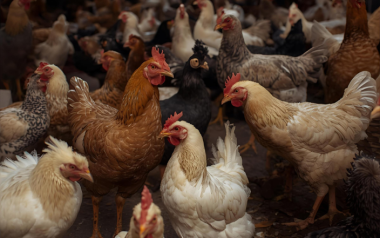Sources: Available upon request
12 Sep 2024
Analysis of the forecasts for egg consumption trends in Europe
The forecast for egg consumption in Europe indicates a modest growth rate, influenced by demographic shifts, economic factors, and regulatory changes.
The consumption of eggs in Europe has been a subject of extensive analysis, particularly in light of evolving dietary preferences and regulatory changes. According to recent forecasts by the European Commission, the consumption of eggs in Europe is expected to grow modestly at an annual rate of 0.3% over the next decade, compared to a 0.9% annual growth rate in the previous decade. This slower growth rate reflects a mature market where consumption patterns are influenced by various socio-economic factors.
- One of the key drivers of egg consumption in Europe is the increasing demand for sustainable and ethically produced food.
- Consumers are becoming more conscious of animal welfare and environmental impact, leading to a preference for eggs produced in cage-free or organic systems.
- This shift is supported by EU policies that promote higher welfare standards and sustainability in food production. As a result, producers are adapting to these demands by increasing the proportion of eggs produced in alternative systems, such as free-range and organic farming.
Demographic factors also play a significant role in shaping egg consumption trends. In countries like Spain, older households tend to consume more eggs compared to younger, independent adults and families with young children. This demographic trend suggests that as the population ages, the overall consumption of eggs may stabilize or even decline unless younger generations increase their intake. Efforts to promote the nutritional benefits of eggs to younger consumers could help mitigate this potential decline.
- Economic factors, including income levels and food prices, also influence egg consumption.
- In emerging economies within Europe, rising incomes are likely to lead to increased consumption of animal-based proteins, including eggs.
- However, in more developed economies, the growth in egg consumption is expected to be more modest, driven by factors such as health consciousness and convenience.
The impact of regulatory changes cannot be overlooked. The EU has implemented various regulations aimed at improving food safety, animal welfare, and environmental sustainability. These regulations have led to higher production costs, which are often passed on to consumers in the form of higher prices. Despite this, the demand for high-quality, ethically produced eggs remains strong, indicating that consumers are willing to pay a premium for products that align with their values.
In conclusion, the forecast for egg consumption in Europe indicates a modest growth rate, influenced by demographic shifts, economic factors, and regulatory changes. The increasing demand for sustainable and ethically produced eggs is a positive trend that aligns with broader societal values. However, addressing the consumption patterns of younger generations and managing the economic impacts of regulatory changes will be crucial for sustaining growth in the egg market.






































